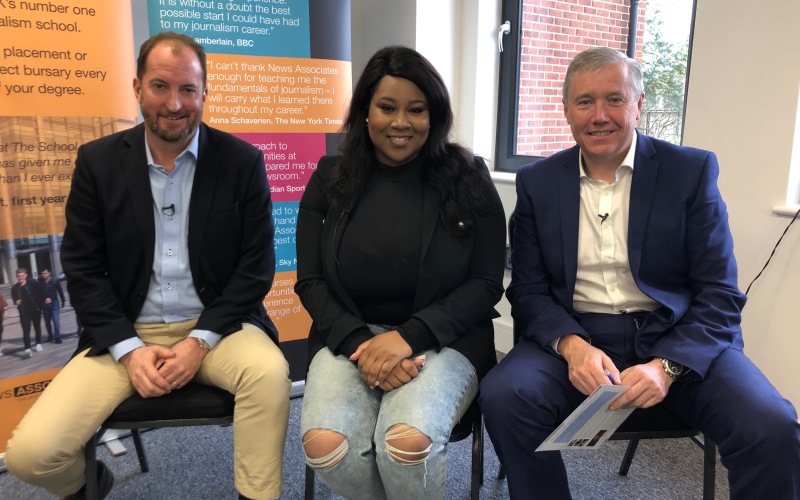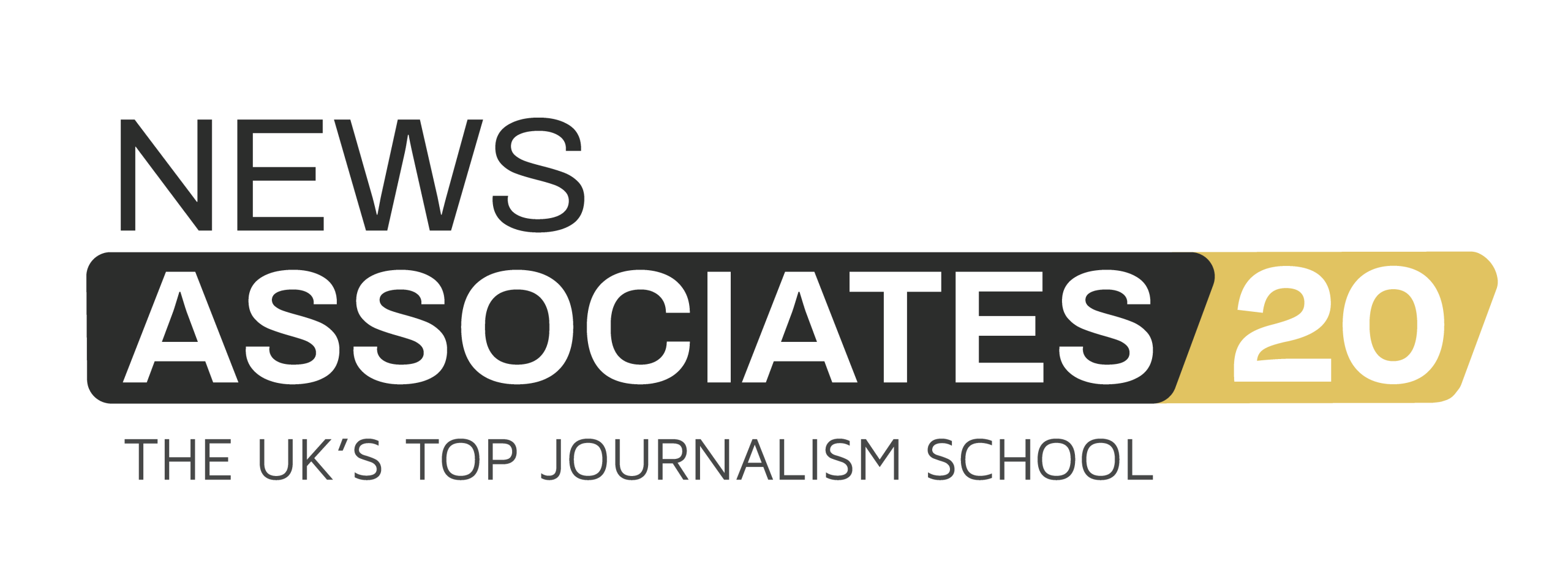News Associates presents JournoFest 2019: PR – Journalists’ friend or foe?
Successful journalists create positive PR relationships, according to JournoFest’s ‘PR – Journalists’ friend or foe?’ panel, writes Kate Nicholson.
The panel was made up of journalists-turned-PR representatives – Boris Johnson’s former spokesman Guto Harri, external communications director for the London Assembly Funmi Olutoye and Premiership Rugby’s communications director Paul Morgan – who explained the etiquette of this essential but sometimes delicate relationship.

Harri began the discussion saying journalists must be aware PRs have a different version of the truth.
He said: “The journalist is the person who checks – is this right?
“Do I trust this person?
“Do the facts support this narrative?”
News Associates alumnus Olutoye agreed: “There is an opportunity to get one up on another journalist if you have a good relationship with a PR.
“But it’s a relationship at arm’s length.”
“Keep an eye on what their agenda is,” says @FunmiOlutoye. #JournoFest pic.twitter.com/aEENd8ivWs
— News Associates (@NewsAssociates) March 16, 2019
From a PR perspective, Morgan emphasised a journalist must be accurate and competent before they can be trusted.
“If they’re not good, they’re going to be a foe,” he said.
This led the panel to discuss what exactly makes a good journalist in a PR’s eyes.
Harri said being open to changes in a story’s narrative is crucial.
Hired to restore the reputation of Rupert Murdoch’s UK newspaper group following the 2011 phone hacking scandal, he explained: “It can be an utterly futile engagement to talk to a journalist who has just decided that you are part of an ‘evil empire’.”
Olutoye added journalists should only make a judgement on a story after listening with a PR.
“There’s nothing worse than meeting a journalist who already knows what the story is,” says @FunmiOlutoye. #JournoFest pic.twitter.com/BsjjbTDjzc
— News Associates (@NewsAssociates) March 16, 2019
The panel then explored how journalists can initiate that relationship of credibility.
Morgan, who was a sports journalist for more than 20 years, advised attending as many events as possible.
“If you’re starting out in journalism and you’re at home four nights a week, you’re not doing the right thing – be somewhere, talk to people,” he said.
“Journalists don’t really go away. It’s a small world,” says @PaulMorganrugby.
“You never know when a face is going to pop back up.” #JournoFest pic.twitter.com/Yi7SPf5uba
— News Associates (@NewsAssociates) March 16, 2019
The panellists also emphasised the similarities between the industries.
Harri said: “You can’t be good at PR without being a journalist first.”
But Olutoye summarised: “We have each other on speed dial. But at the same time, we keep one eye open.”


